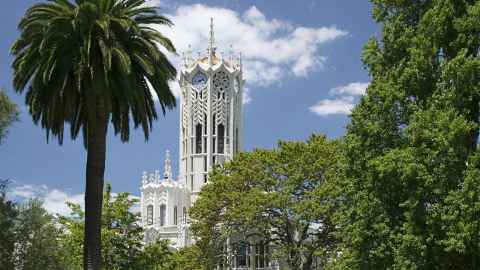DRAMA 301
Drama: Topics and Themes
Please note: this is archived course information from 2020 for DRAMA 301.
Description
This course focuses on several topics around working with an audience, especially in comic acting and comic forms. You should be prepared for extensive practical workshops and exercises on the material studied, both solo and in groups. Topics of exploration will include: laughter, the comic actor and the audience, clowning, styles of comedy and the comic, the social spaces of performance and so on. We will look in particular at dramatic work by Shakespeare, at traditions of the mask and commedia dell’arte and street theatre. Our semester-length project will be a performance of a classic comedy by Shakespeare or other dramatist, performed in sections by workshop groups at the end of the semester.
Readings for workshop sessions will be provided over Canvas in weekly modules, and you are also expected to work on group projects for a further two hours a week, on Wednesday afternoons. Assessment is based on work in class, both individually and in groups, plus occasional written reflective assessments of your creative exploration and development. There is no examination.
Skills
During this course you will develop expertise, experience and strategies in the following areas:
- Improvisational games and exercises
- Theories of laughter and their relevance to comic structures and performance
- Theory, traditions and practical performance of mask work, both individually and in groups
- Theory, traditions and practical performance of Street Theatre
- Enhanced acquaintance with standard comic structures and aspects of clowning (skits, business, shtick, improv and so on)
- Enhanced acquaintance with Shakespearean language and comic structures
- Scenarios and strategies of working in group project environments
Class limits for 2020
Enrolment is limited to 30 students.First priority: students with a Drama major ranked by grade in DRAMA 302. Second priority: Any Drama majors who have not yet sat DRAMA 302 ranked by grade in DRAMA 202 or 204. Third priority: Drama minors ranked by grade in DRAMA 202 or 204. Fourth priority: other students who have passed DRAMA 202 or 204 ranked by grade in DRAMA 202 or 204. Fifth priority: students in non-Drama majors ranked by grade in Drama-related courses. Sixth priority: students with other demonstrable experience in the dramatic arts.
